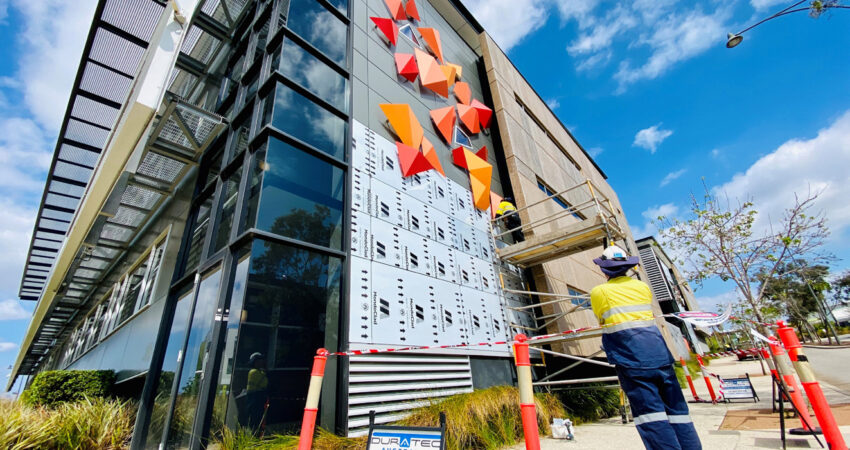While the recycling of non-compliant cladding is a new process, its contribution to environmental sustainability, through the divergence of waste to landfill, is making it an industry norm. Duratec offers cladding recycling across the country.
In 2018, the Australian Building Codes Board implemented measures, through the National Construction Code, to prevent the use of non-compliant cladding. Following amendments to the code, state governments introduced regulations that not only put a stop to the application of combustible aluminium composite panels (ACP) in the future, but also ordered the removal of such cladding from existing buildings.
Duratec began replacing the external cladding on buildings across Australia well before 2018 and is committed to the creation of modern and fire-compliant building facades. As part of the company’s ongoing drive towards environmental sustainability, Duratec also provides mandated recycling on
all its cladding replacement projects.
In Western Australia, the company has partnered with Remondis, one of the world’s largest recycling, service and water companies, with locations around the country. Remondis specialises in innovative waste management solutions and has recently commissioned custom manufactured
machinery to recycle non-compliant cladding from Duratec’s increasing number of facade refurbishment projects across the state.
In line with Remondis’ commitment to operating within a circular economy – one that promotes sustainable materials management – Duratec diverts non-compliant cladding waste from landfill and transports it to Remondis’ local facility where it is recycled.
The process of recycling non-compliant cladding is in its infancy and Duratec is excited to be at the forefront of such innovation. The operation involves separating the panels into their components of aluminium and composite material, and repurposing them into sustainable products for the building and industrial sectors.
As well as reducing the negative impact of such waste on the environment, the recycling of non-compliant cladding assists in meeting regulatory bodies’ requirements for the removal of waste from site. It also enables building owners to reduce their own carbon footprint.
Recycling cladding locally means there is no need to send it to landfill or ship it overseas where it can undergo processes that are harmful or unethical. This safe, end-to-end solution follows Australian Standards and employs local workers.



